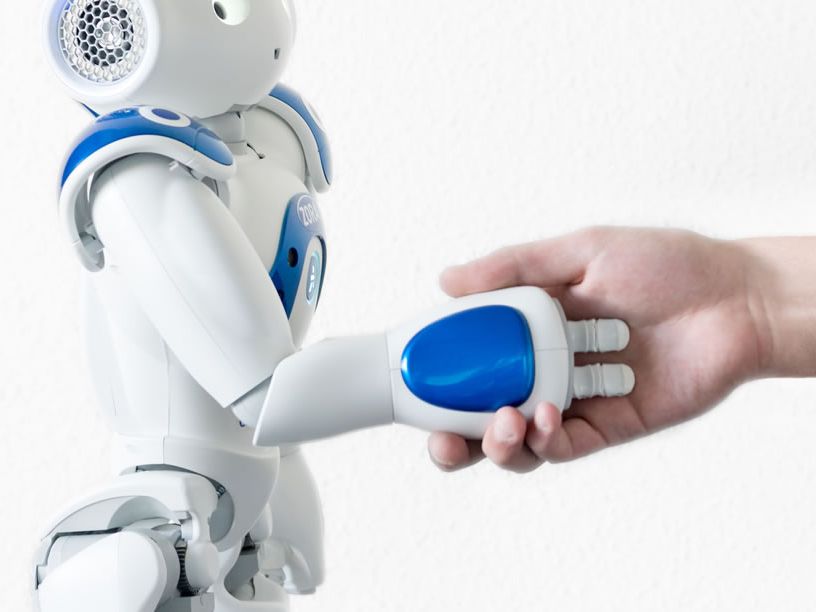Teaching robots to speak Gronings: an elderly care experiment
| Date: | 11 July 2019 |

Are elderly people more comfortable with technology if it speaks their language? That's the question Professor Jenny van Doorn will examine in a new project awarded €50,000 in funding from the Idea Generator programme of the Dutch National Research Agenda (NWA).
Speech recognition that allows technology to be operated through verbal commands and to communicate back to the user, has much potential to make technology more accessible for older people. Yet so far, elderly people can still be reluctant to use technological applications. Van Doorn's project will examine whether programming the applications to understand and use native regional languages like Gronings improves the user experience of older people. As Van Doorn explained, it's an ever more pressing area of research due to the increasing demand for elderly care.
Why is this an important area of study?
Van Doorn: Due to the ageing population and rising life expectancy the number of elderly people in need of care will exponentially increase. This will put a large strain on the health care system, where severe staff shortages are expected for the future. Another challenge for elderly care is the increasing inflow of patients who are multilingual, or whose first language is not Dutch. With advancing age, people can experience language loss (attrition), and retreat to a single language. This is generally their first language, the one spoken in the family context. This can be a foreign language, but for a large group of people in the Netherlands (estimated to more than 2 million), this is a regional language (Low Saxon, Limburgish, or Frisian). In this challenging health care environment, developing technological solutions to mitigate both problems are of utmost importance. This multi-disciplinary project therefore investigates whether the intelligibility of the speech and the acceptance of technological solutions can be improved if the technology - in our case probably a robot - speaks to the elderly in their native language, where we will start with the dialect "Gronings".
What are the societal implications?
Van Doorn: While technology is an important tool to deal with the challenges within the health care system, the interface between the elderly and technology is still a struggle, in particular when a speech-based interface is used. Shortcomings lie not only in the intelligibility of the speech, but also in the extent in which the elderly are accepting of and willing to use the technology. We developed this project in cooperation with societal stakeholders, in particular the housing corporation Groninger Huis, and hope that a dialect-speaking robot will help them to get technological solutions more accepted among the elderly. On the more long-term, we could imagine doing this also for other dialects, in the Netherlands but also for instance in Germany.
How did you land on this topic as the subject for your research?
Van Doorn: By talking to someone I know from the housing corporation Groninger Huis. They are already experimenting a bit with robots/technology, but also notice reluctance among the elderly. When I did a field study in an elderly care facility in Drenthe with a health care robot I also saw myself that the elderly struggled understanding the robot, and were confused when it suddently switched to Flemish instead of Dutch.
What will the grant allow you to do?
Van Doorn: The grant will allow me to develop a text-to-speech (TTS) implementation of “Gronings” together with students from linguistics and FSE, where we also need local speakers of Gronings for our recordings. Then, we will hopefully be able to integrate this technology into a robot, that we will also able to purchase with this grant.
How will you conduct your research?
The first step of this project consists of the development of a localized text-to-speech (TTS) implementation of “Gronings”. The second step is to integrate this technology into a physical platform, such as an avatar or a robot. The third step is to investigate in field experiments whether the elderly are more enthusiastic about a robot that uses synthesized Gronings speech than "normal" Dutch.
You can find out more about van Doorn's research here. For more about the Idea Generator research programme, see here. For more about robotics in elderly care, please see this movie of Fedde Hoekstra that resulted from a cooperation with the Groninger Huis and students from the Noorderpoort college that served as a starting point for this project.

